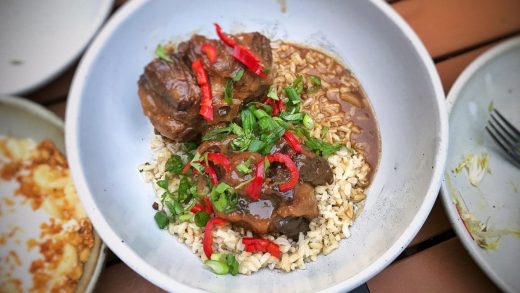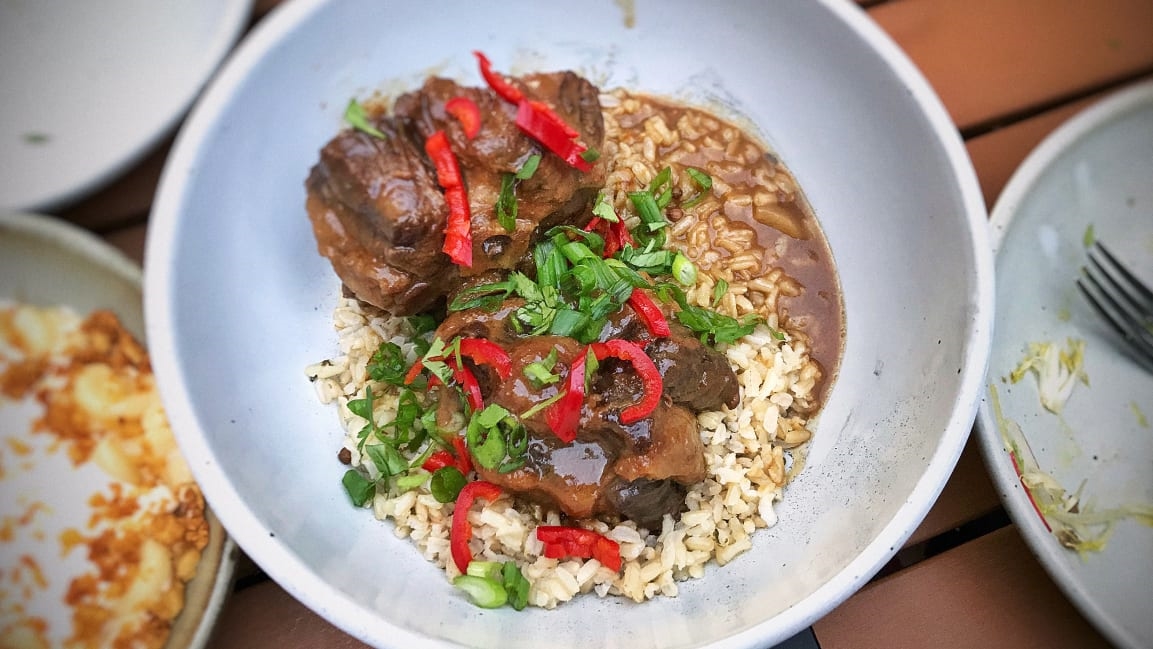This new program gives funds to California restaurants if they serve free meals and commit to fair wages
At Hook and Ladder, a restaurant in Sacramento, California, a new item on the menu is available on a sliding scale: $10 for some customers, $20 for those who can afford to pay more, and $0 for those who can’t afford to pay anything now. The restaurant is one of several to participate in a new program created to help solve an immediate need in the coronavirus crisis—and to reshape the future of the service industry at a time when the inequities of the sector are glaringly obvious.
Through the program, called High Road Kitchens, restaurants can get grants (the amount depends on location and funding levels) when they commit to providing daily meals through a pay-what-you-can model, and also commit to a living wage for their own workers and increasing equitable hiring and worker treatment as their restaurants fully reopen.
“High Road Kitchens isn’t just about feeding people and creating jobs, although it certainly is that. It’s directional towards bigger ideas that could have widespread change,” says chef Daniel Patterson, whose nonprofit, the Cooking Project, collaborated on the new program with the nonprofit One Fair Wage and Robert Egger, the founder of another nonprofit, DC Central Kitchen. The California state government is funding the program, along with several cities and foundations, though the pay-what-you-can model is intended to keep the program going beyond the initial grants.
The founders recognized that food service workers have been hit particularly hard by the crisis; as restaurants have closed or cut back hours, an estimated 10 million service workers have lost jobs. Most don’t have unemployment insurance, either because they don’t earn the minimum amount to qualify or because of their immigration status. And because many restaurant workers were struggling to make ends meet before the pandemic, they often don’t have savings to turn to now.
The crisis provides a chance to rethink typical operations and how workers are usually treated. “The big question everyone’s asking—or one of them—is how do we make real change? How do we make a better industry? What does that even look like?” says Patterson. (Patterson has a complicated history with his past attempts to make a better industry in the Bay Area.) Over the rest of the year, while the restaurants in the program still aren’t operating at full capacity, One Fair Wage will provide training in how to pay a living wage profitably, and how to increase race and gender equity between workers, from dishwashers to chefs to bartenders.
In the meantime, the grants are also helping restaurants survive. “Money is very tight as a business,” says Penny Baldado, founder of Cafe Gabriela, a restaurant in Oakland that is participating in the program. “And we want to be here in the middle of gentrified Oakland when this is all over and still be of service within the community.”
Fast Company , Read Full Story
(9)



